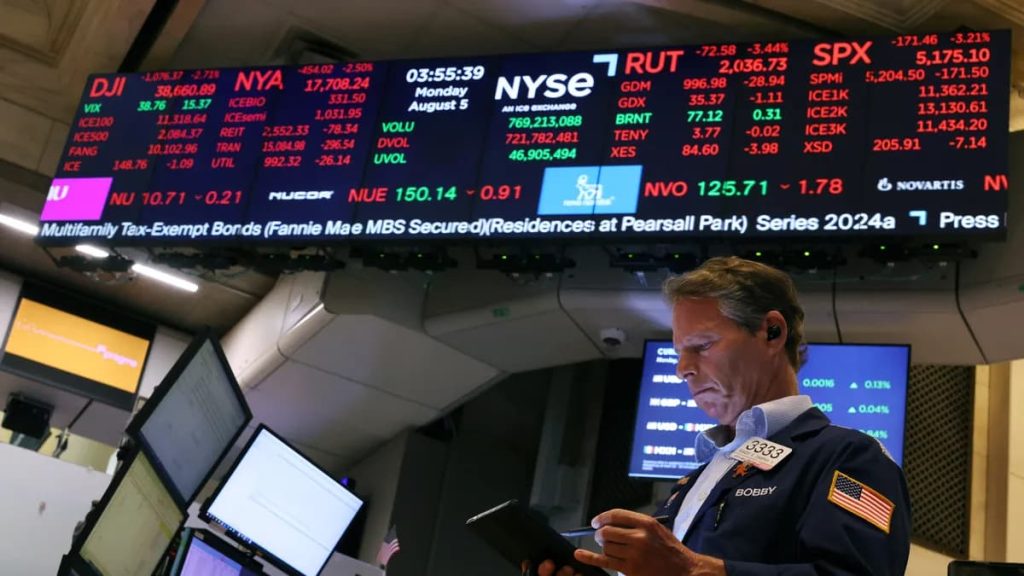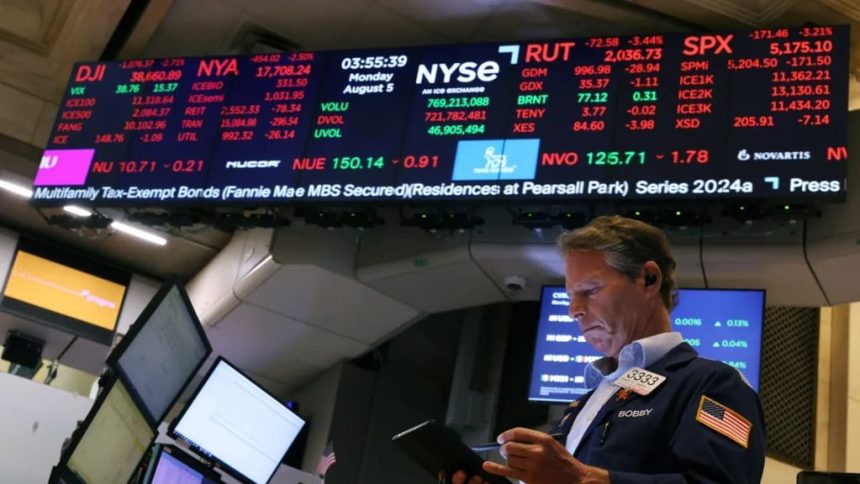With a bold gamble on artificial intelligence, financial data giant S&P Global aims to revolutionize the way Wall Street analyzes data and makes decisions. In a major initiative it announced, it is partnering with Accenture to train all of its 35,000 employees in productive AI skills. This move shows how much S&P Global believes in the transformative power of this technology in the financial services industry.
Artificial intelligence for everyone
According to Bhavish Dayalji, S&P Global’s chief artificial intelligence officer, “AI is for everyone.” “That’s exactly why we wanted to work with Accenture: we want to make this technology available to all of our employees, whether in finance, legal or sales, to better understand customers,” he continues.
This is not just a simple technology upgrade. S&P Global is at the forefront of a fundamental change in the way financial professionals work, from junior analysts to senior executives. The company envisions a future where AI not only crunches numbers faster, but also generates new insights and ideas that can give its customers a competitive edge.
Academy of Artificial Intelligence
The main pillar of this initiative is a comprehensive generative AI learning program developed in collaboration with Accenture. The soon-to-be-launched program will use Accenture’s LearnVantage platform to deliver customized content based on S&P Global’s specific needs.
“You can’t use ChatGPT multiple times and be a productive AI expert,” Dialjee said. “That’s why we built this comprehensive program to teach people what generative AI is, how it differs from traditional AI, and how they can use it as part of their workflow.”
This collaboration goes beyond employee training. S&P Global and Accenture plan to develop new AI metrics and tools for the entire financial services industry. It’s a smart move that could make S&P Global the go-to source for AI-powered financial analysis.
S&P Global has started this transformation. Spark Assist’s built-in platform and customer-focused AI chat are early examples of how the company sees AI augmenting, not replacing, human intelligence.
“We’ve built vibrant communities that are engaged and tell us what’s working well and what’s not,” Dialjee explained. They share with us things like, “Wow, I’ve been able to create a program that performs certain data mining tasks and improves the speed at which this task is completed.” So you can measure time-to-market very easily. Where normally someone would tell you, ‘Hey, it’s going to take me two weeks to do something like this,’ now I can do it in a day.”
From Number Counters to Alchemists of Insight: Wall Street’s New Workforce
The potential impact of this pressure on artificial intelligence is significant. Some employees report time savings of up to 50% on some tasks. But according to Dialji, the real value lies in freeing up professionals to focus on more valuable work.
“My view has always been that AI is for everyone, and I really wanted to create opportunities for people to do more valuable and distinctive work,” he said. We have domain experts with decades of knowledge in specific industries such as financial services and oil and gas markets. “My goal is that I don’t want them to do repetitive work.”
The move comes at a critical time for S&P Global. With tech giants like Microsoft and Google integrating AI into their products, financial data providers can’t be left behind. S&P Global is betting that its massive warehouses of proprietary financial data, combined with advanced AI capabilities, will give it a unique advantage.
“We are an integral part of this change,” Dialjee said. We are building these generative AI applications using our data. So we are sticky and part of this work flow.”
However, challenges remain. The rapid development of artificial intelligence, data privacy concerns and the need for model accuracy in high-risk financial decisions are all obstacles that S&P Global must overcome.

The Magic Orb of Artificial Intelligence: Predicting Success in an Uncertain Future
The question is how to measure success. While some of the productivity gains are clearly visible, Dialji acknowledges that the true impact may take a long time to show up on the balance sheet.
“In the coming years, we should start seeing that on our balance sheets,” he said. How will the composition of our teams change? What are they working on?”
Despite these challenges, Dialgy is optimistic about the transformative potential of generative artificial intelligence. “This change is coming,” he stressed. I think there is a bit of impatience as to why this change hasn’t happened yet. And I think like any technological change, it may take longer than you think. “But when it really starts to pick up speed, it happens very quickly.”
The implications of this initiative extend beyond S&P Global. As one of the largest providers of financial data and analytics, the company’s adoption of AI could accelerate its adoption across the financial services industry. Competitors, customers and regulators are all watching closely to see how this ambitious bet plays out.
Ultimately, S&P Global’s quest for AI is not only to improve its own operations, but to reshape how the entire financial industry operates in an AI-driven future. As Dialjee said, “I think what we really need to think about is how are our lives going to change? And how do we want AI to play a role in improving our lives, both in the larger society and in our companies?”
With its full-fledged strategy in AI, S&P Global is not only betting on the future of finance, but also aims to be a house that always wins.
source
RCO NEWS















